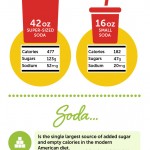Guest post by Brenda Lyttle.
Everyone has heard of caffeine but many people don’t know exactly what it is. This is a chemical that is found in tea, coffee, chocolate, soda, and other products. It is the chemical that gives us that kick in the morning, or others times when our systems start to lag.
So what exactly is in caffeine and what are the effects of caffeine?
Caffeine is widely known to give you an energy boost and wake you up.
Drinking just 3 cups of coffee daily can activate dopamine and boost your memory and mental performance. Another recent study shows that coffee can decrease the risk of stroke, certain cancers, and heart disease. Other areas that caffeine seems to help include migraines, Type 2 Diabetes, asthma, gallbladder disease and low blood pressure.
Caffiene Research Links
The chemical that gives us such a wonderful boost has been the focus of countless studies. Here are some resources to dig deeper into the research behind caffeine and its effects:
- Mayo Clinic on Caffine
- Science Daily – New Evidence That Caffeine Is a Healthful Antioxidant in Coffee
- Science Daily – Caffeine and Diabetes: Helpful or Harmful?
- Science Daily – Drinking Coffee, Decaf and Tea Regularly Associated With a Reduced Risk of Diabetes
- Science Daily – New Evidence That Drinking Coffee May Reduce the Risk of Diabetes
- Science Daily – Coffee Drinking Related To Reduced Risk Of Liver Cancer
How Caffeine Helps a Workout?
When you drink something with caffeine in it prior to working out, you’ll most likely notice a better performance. The reasons for this are:
- An increase in physical endurance and stamina: As caffeine increases pulse rate, production of stomach acid and blood pressure, it helps start fat storage and makes muscles use this fat for fuel.
- Decrease in exertion: More studies show that caffeine might change the view you have of how hard you’re working. UK researchers discovered that athletes ingesting caffeine had a lower rate of perception regarding their exertion than athletes without caffeine. Overall exercise performance was also increased.
- Decrease in muscle pain: Robert Motl, a community health professor at the University of Illinois found that caffeine can decrease muscle pain when exercising. (Science Daily – Caffeine Reduces Pain During Exercise, Study Shows) The reason for this is because of caffeine’s involvement with specific parts of the brain that process pain. He conducted a study of 25 college age males that were split into 2 groups. One group received daily caffeine and the other group did not. Professor Motl found that after 30 minutes of exercising, the group receiving daily caffeine reported far less muscle soreness than those that did not.
How Much Caffeine You Should Take?
Not all experts can agree on the best way to get your caffeine fix. Many believe that too much coffee carries other health risks that make it a bad option. In addition, there are some studies that show coffee as having the same benefits as caffeine pills. Most experts feel that taking caffeine pills isn’t necessary because there are various ways to get it naturally. Tea is believed to be a lot healthier than coffee but it doesn’t have as much caffeine as coffee.
Typically, 300 milligrams of caffeine daily is considered to be safe. That adds up to roughly 3 cups of coffee or 6 cups of tea. Athletes may want to take a dose of 3 to 6 milligrams per kilogram of body weight 1 hour prior to exercising. However, don’t do this daily. It’s only for the occasional big event. Your doctor will be able to recommend the proper dosage for you.
Caffeine Risks
Caffeine in large doses can cause anxiety and insomnia. It can also cause abdominal cramps and dehydration if you don’t get enough fluids because caffeine is also a mild diuretic. Using caffeine too long can increase the risk for an ulcer or make an existing one worse. Caffeine can become a dependency as it is a stimulant. If you stop using it suddenly, you can develop caffeine withdrawal and migraines.
Guest Author
Brenda Lyttle is a health expert who began writing for publications in her community in 2005 and now commands an authority in writing on healthy living, diet pills, anti-aging, and best acne treatments related topics.







Want to discuss? Join the conversation CubeDwellerFitness's Facebook Page.